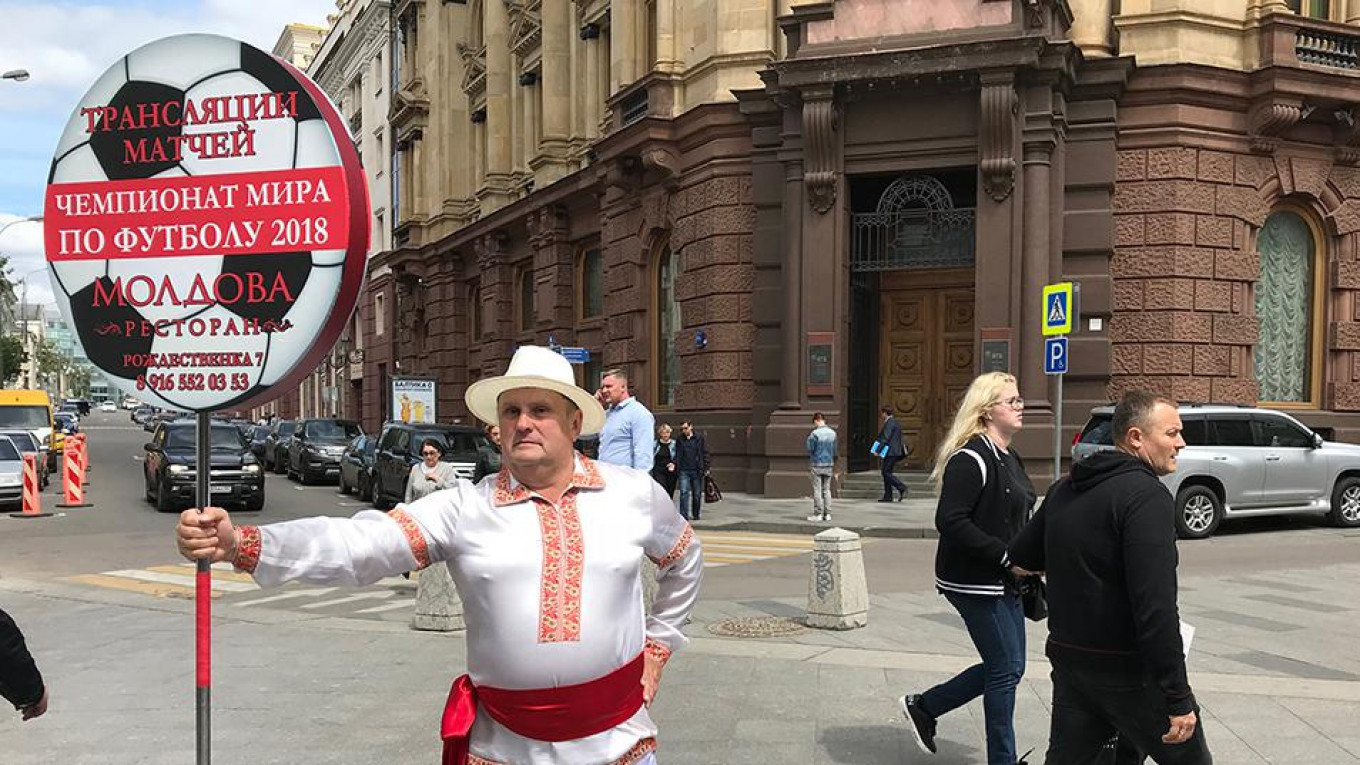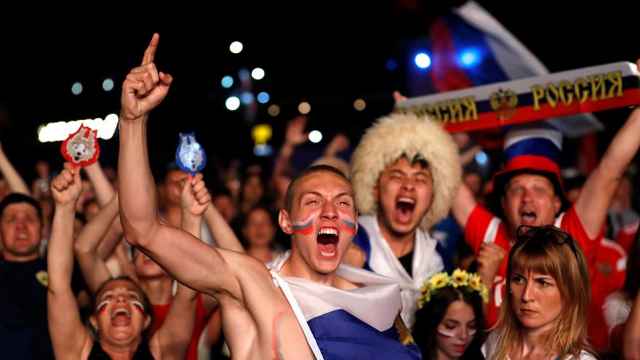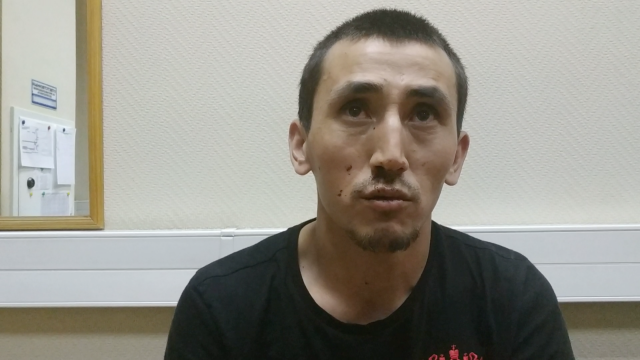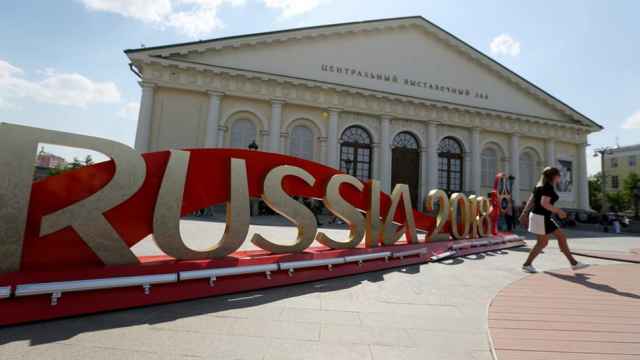In the run-up to the world’s largest sporting event this year, small businesses in central Moscow were readying in the hopes of making a quick buck.
With FIFA set to earn $6.1 billion from the World Cup this summer — 10 percent more than estimated and $1.3 billion more than the 2014 World Cup — local businesses are hoping that they can get a cut too. Some even said they had seen increased earnings before the first match kicked off.
“We’re up 20 percent just after last week,” said Anton Gusev, 27, manager of Bar Buffet Nikolai on Tverskaya Ulitsa. He pointed to increased foot traffic along one of Moscow’s main streets as the reason.
Throughout central Moscow on Thursday afternoon, just hours before the opening match kicked off, businesses were dressed up for the party. Decorated in football-themed regalia, shops ranging from cafés and restaurants to electronics stores were ready for the tens of thousands of tourists expected to flock to the capital over the next four weeks.
Sex Dolls, Chocolate Balls
Near Lubyanka Square, where throngs of tourists were passing onward to Red Square, everyone seemed to be getting in on the fun. They included a man dressed in traditional Moldovan garb who was advertising live showings of the matches at a nearby Moldovan restaurant. “We still want to make tourists happy even though Moldova didn’t make the World Cup,” he said.
Some businesses even sprouted up solely for the tournament.
Football Party Bar, down an alley just off Tverskaya, is hoping to attract tourists by touting itself as an exclusively English-language watering hole. The bar’s 33-year-old owner Alexander Abramov explained it will offer daily lunches, nightly 90s disco dance parties lasting long past sunrise and, as per a flyer, Russian girls.
Several of those girls last Thursday afternoon were handing out the flyers to passers-by clad in other countries’ football jerseys. Abramov said that he had selected the girls with the best English so that tourists would feel comfortable.
Meanwhile, one girl was trying to explain to a tourist that she couldn’t hear what he was saying. “I don’t listen you,” she said. With her meaning lost in translation, the tourist, disappointed, continued on his way.
Across town, near Moscow City, Dmitry Alexandrov has taken a creative approach to tapping into Russia’s feminine draw. At the beginning of May, just in time for the tournament, he opened The Dolls Hotel — a hotel where, in addition to having a place to rest, patrons can also have sex with human-like dolls.
“I am eager to welcome many foreign tourists,” Alexandrov, 35, said. He noted that over the past week he has seen a 15-percent increase in customers, most of whom were Spaniards. “Many guys came to have a good holiday here, but they don’t want to cheat on their other half,” Alexandrov explained.
For guys who arrived in Russia with their other half, Yelena Buyanova runs a chocolate shop near the Bolshoi Theater. Buyanova, who is in her 60s, put out a line of World Cup-themed chocolates — boots, balls, even the World Cup trophy — that she says “would make a great gift for a girlfriend.” She also hung a plasma screen television behind the register so patrons could watch matches while shopping.
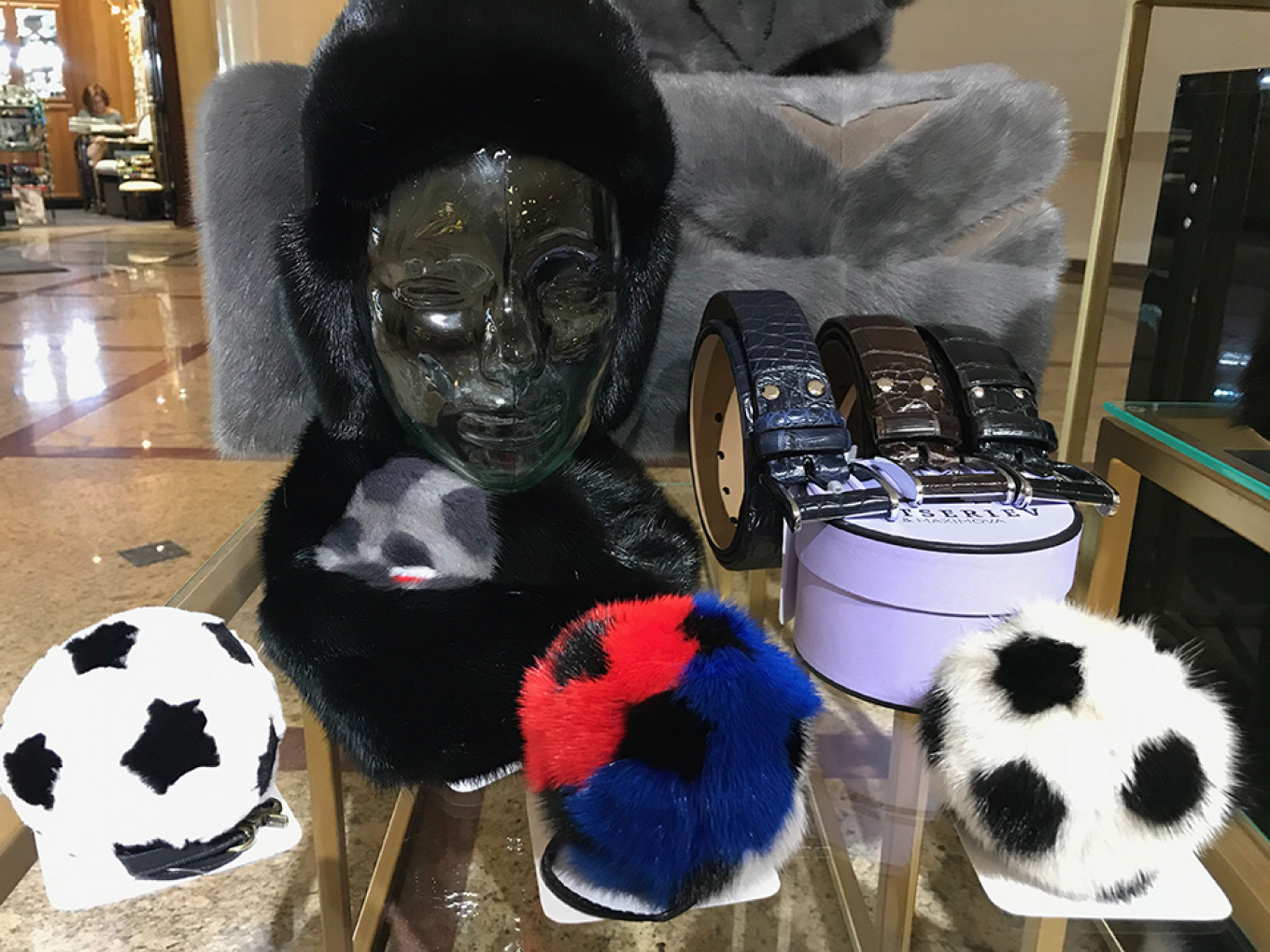
Both offerings, however, Buyanova said, were simply an effort to get into the World Cup spirit. “We don’t have that much to offer tourists,” she said. “We’re not a bar where a lot of people will come watch the game, we only sell chocolate.”
A woman who was hawking mink fur soccer balls for 10,000 rubles ($159) that fit in the palm of a customer’s hand shared Buyanova’s sentiment. The woman, who asked to remain anonymous, compared her wares to the bouquets of flowers in the shape of football balls inside the Marriott Hotel on Ulitsa Petrovka where she had set up shop. “All of this is just thematic,” she explained, motioning around the hall.
Rich in Atmosphere
If so, it is indeed the right sentiment, said Sergei Altukhov, deputy director of Moscow State University’s Sports Management Center and a professor in the university’s economics department. “There’s no trickle-down effect for local businesses during events like this,” he explained. “Sure, there’s increased foot traffic, but it doesn’t make a very significant difference.”
And if businesses try to hike up their prices to boost earnings, Altukhov said, Russia’s consumer protection watchdog Rospotrebnadzor is ready to pounce with fines.
That threat, however, has not stopped landlords on Airbnb from setting prices for wooden sheds, among other odd options, in excess of $300 per night. Moreover, a Russian journalist found a café close to Moscow’s Luzhniki Stadium with prices in the English-language menu set at double those in Russian.
Altukhov’s warning had perhaps not made its way to the management of Prime Café, a Moscow-based chain. At a branch on Tverskaya Ulitsa, papier-mâché soccer balls hung from the ceiling. Alexander Konstantinov, a 21-year-old barista, said that management had even prepared a list of English phrases for employees to learn.
“I don’t expect we’ll make much more money than usual,” he said. “But I am really excited to practice my English.”
Moments later, an Uruguayan couple came in. Konstantinov greeted the pair eagerly in English, though when he found out that they only spoke Spanish, he was visibly dismayed. Still, after a few fumbled attempts at communication, the three broke out in laughter.
When the couple sat down, Konstantinov said, “It’s so fun to meet foreigners.”
A Message from The Moscow Times:
Dear readers,
We are facing unprecedented challenges. Russia's Prosecutor General's Office has designated The Moscow Times as an "undesirable" organization, criminalizing our work and putting our staff at risk of prosecution. This follows our earlier unjust labeling as a "foreign agent."
These actions are direct attempts to silence independent journalism in Russia. The authorities claim our work "discredits the decisions of the Russian leadership." We see things differently: we strive to provide accurate, unbiased reporting on Russia.
We, the journalists of The Moscow Times, refuse to be silenced. But to continue our work, we need your help.
Your support, no matter how small, makes a world of difference. If you can, please support us monthly starting from just $2. It's quick to set up, and every contribution makes a significant impact.
By supporting The Moscow Times, you're defending open, independent journalism in the face of repression. Thank you for standing with us.
Remind me later.



